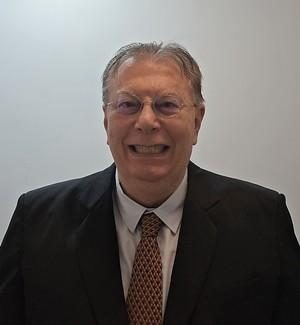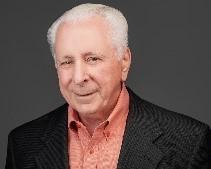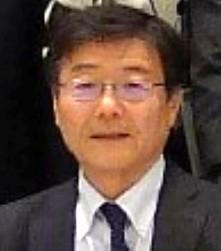The True Source of Civilization’s Future is Energy Wisdom
A Cross-Cultural Reflection on Efficiency, Ethics, and Life to support civilization growth.

Armando Cavanha A Brazilian executive and researcher with degrees in AI, logistics, business, and engineering. Former PETROBRAS leader and CEO of Thompson Knight Global Energy Services. Author and host of the "Cafe com Cavanha" channel.

Ronald Stein, P.E., is an engineer, columnist on energy literacy at America Out Loud NEWS, and advisor on energy literacy for the Heartland Institute and CFACT, and co-author of the Pulitzer Prize-nominated book “Clean Energy Exploitations.” He is also the recipient of an unsolicited Tribute to Ronald Stein from Stephen Hines.

Yoshihiro Muronaka, P.E.Jp is a chemical engineer who currently focuses on evaluating net-zero and decarbonization policies, advocating alternative energy concepts such as “carbon symbiosis,” and promoting balanced international energy cooperation.
Co-authored by Armando Cavanha (Brazil), Ronald Stein (USA), and Yoshihiro Muronaka (Japan)
Published November 17, 2025, at America Out Loud NEWS https://www.americaoutloud.news/the-true-source-of-civilizations-future-is-energywisdom/
Energy wisdom—not energy denial—is the foundation of sustainable civilization. Three industry leaders share their individual thoughts on the state of energy, and then collectively join forces for a powerful conclusion.
Introduction (Armando Cavanha of Brazil)
Twenty-five years ago, Professor Franco Battaglia wrote a provocative essay claiming that “pursuing energy saving is a foolish idea.” He argued that as efficiency improves, people inevitably consume more energy, and that prosperity itself depends on greater energy use.
“The more energy we use,” he said, “the better our well-being.” To save energy, therefore, would mean to live worse.
Yet the statement “The first source of energy is saving” still resonates. It invites a reinterpretation, not as an economic contradiction, but as a moral and civilizational question. True saving is not deprivation; it is intelligence in utilization—the conscious alignment between human purpose and the limited natural resources of this 4-billionyear-old Planet Earth.
In today’s world, obsessed with carbon neutrality and net-zero slogans, this idea becomes urgent. The challenge is not simply to consume less, but to consume wisely—to rediscover saving as an ethical act that integrates science, culture, and respect for life.
Efficiency and Saving (Yoshihiro Muronaka of Japan)
For an engineer, the distinction between efficiency and saving is fundamental.
Efficiency is a design challenge: achieving a task with the minimum input through better engineering.
Saving, on the other hand, is often a behavioral practice: using less through habit or restraint.
Japan’s experience after the 1970s oil crisis illustrates this well. Instead of moralizing about sacrifice, industries pursued technical excellence—the Top Runner approach. They designed machines, appliances, and industrial systems to achieve maximum performance per unit of energy. In doing so, saving became a byproduct of innovation, not a constraint on it.
But to understand the deeper meaning of saving, we must remember that products, transportation fuels, and electricity are not the purpose of civilization, it is a means to serve life. They exist to serve a purpose, to enable human life and creativity. When engineers design a process—whether a factory, a power plant, or even a kitchen stove— the goal is never “to consume energy,” but to achieve the intended function with elegance and precision.
Consider the act of cooking. A mother preparing dinner for her family adjusts the flame according to each ingredient—sometimes it is strong, sometimes gentle, sometimes paused. Every material, every process, has its optimal time and rhythm.
The art of engineering is similar: finding the point where nothing is wasted, and every bit of energy fulfills its role. Designers and manufacturers think about these details long before the process begins—choosing materials that are robust but not heavy, that conduct heat well, that do not cause food to stick to the pan, and that are easy to clean.
Every decision reflects a search for harmony between purpose and performance. True efficiency is not just in the moment of use, but in the thoughtfulness that shapes the entire lifecycle of the tool.
When the engineer’s intention—to design for perfect efficiency—meets the hand of the mother cooking with love, the story of energy finds its completion.
Technology and humanity have become one. Energy, at that moment, fulfills its true role —not as a master, but as a humble servant in the story of life.
The
Resource Reality (Ronald Stein USA)
While policymakers promote “net zero” illusions, the real challenge is material: our civilization depends on finite, non-recyclable resources. Every year, humanity consumes about 35 billion barrels of oil, 8.5 billion tons of coal, and 132 trillion cubic feet of natural gas
These are not renewable flows but one-time gifts of the Earth—and they sustain more than 6,000 products essential to modern life: medical devices, fertilizers, computers, transportation, clothing, and even the food chain itself for the 8 billion now living on this Planet.
Solar panels and wind turbines cannot produce any materials demanded by our materialistic society. They depend on them. Every renewable system requires mining, metallurgy, logistics, and manufacturing powered by hydrocarbons.
Eliminating fossil fuels without viable replacements is not just impractical, it is morally irresponsible. It would condemn billions to poverty, hunger, and disease, returning humanity to pre-industrial conditions.
The true moral imperative is not to abandon energy, but to use it wisely, preserve it efficiently, and develop new forms responsibly.
Energy is a utility that sustains civilization. The tragedy of today’s debate is that many leaders treat affordable energy as a villain, forgetting that without it there is no economy, no medicine, no education, no comfort, and no dignity.
Toward Energy Wisdom (Joint Conclusion)
From Franco Battaglia’s challenge to Armando Cavanha’s reinterpretation, and from Ronald Stein’s energy literacy to Yoshihiro Muronaka’s engineering vision, a coherent message emerges: Energy wisdom—not energy denial—is the foundation of sustainable civilization.
Energy efficiency, behavioral awareness, and moral responsibility are not contradictions; they are the three dimensions of maturity in how humanity relates to nature. Efficiency seeks to perfect the means. Savings seeks to harmonize purpose and needs. Wisdom seeks to align technology, ethics, and life.
Our task is not to glorify scarcity or excess, but to rediscover balance. Energy is not an enemy to be defeated, nor an idol to be worshiped. It is a faithful companion on the human journey—a silent partner in every heartbeat of civilization.
As we face the great transitions of the 21st century, may our leaders learn this simple
truth:
“The future of humanity will not be secured by denying energy, but by mastering the wisdom to use it responsibly.”
Please share this information with your friends to encourage energy literacy conversations at the family dinner table.
Click this Link to Sign up for Energy Literacy from Ronald Stein
